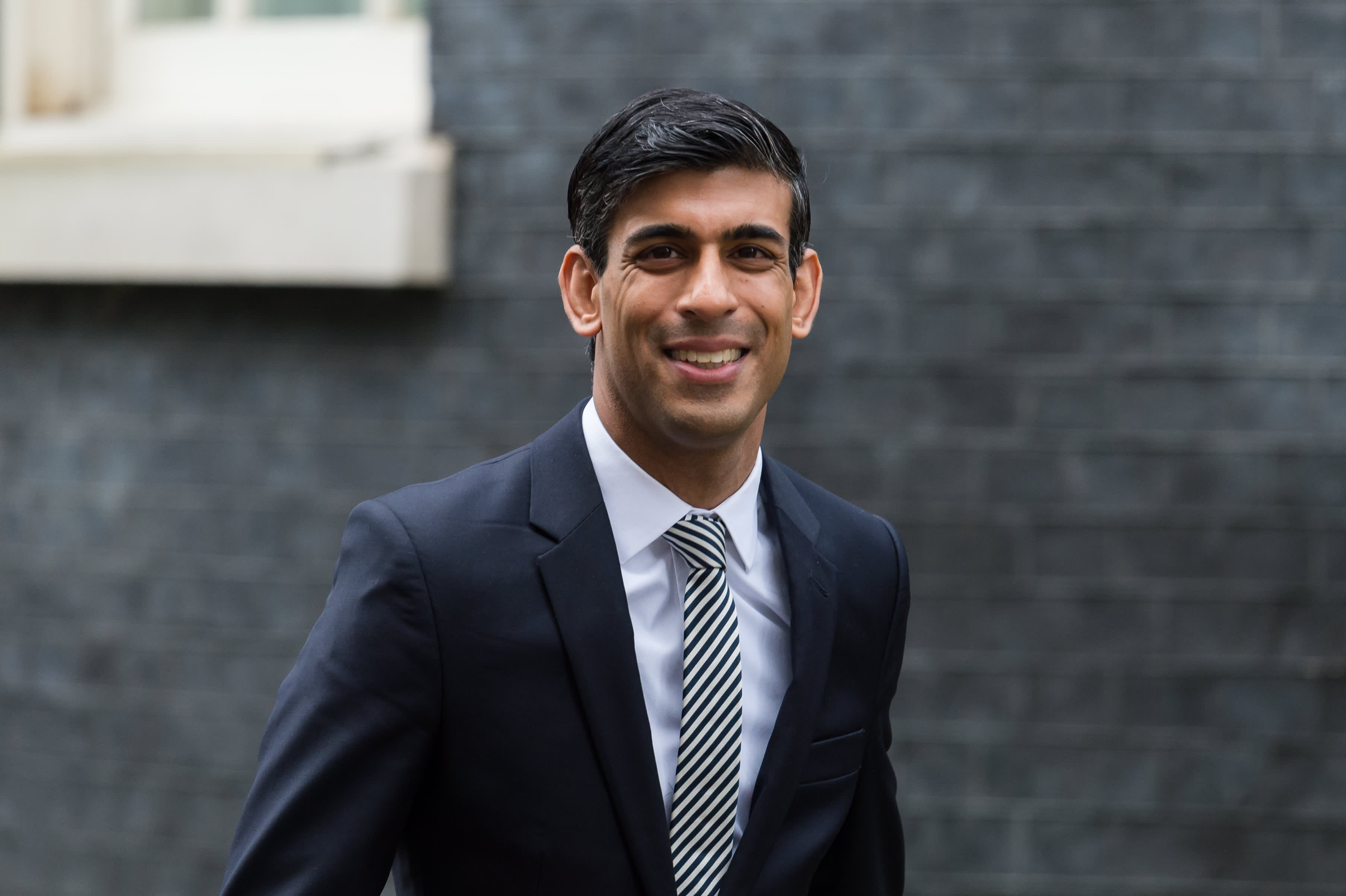
Chancellor of the Exchequer Rishi Sunak leaves 10 Downing Street after attending a Cabinet meeting on 14 February, 2020.
Barcroft Media
The U.K.’s finance minister announced Thursday that the country’s furlough scheme, which subsidizes workers’ wages that are unable to work due to the coronavirus pandemic, will be extended to March 2021.
“The economic recovery has slowed, and the economic risks are skewed to the downside,” Chancellor Rishi Sunak told the House of Commons, flanked by Prime Minister Boris Johnson.
“Given this significant uncertainty, a worsening economic backdrop and the need to give people and businesses security through the winter, I believe it is right to go further. So we can announce today that the furlough scheme will not be extended for one month, it will be extended until the end of March,” he said.
The policy would be reviewed in January, he said, to see whether the economic situation is improving enough to ask employers to contribute more themselves to their employees.
It had already been announced last weekend that the furlough scheme, or “Jobs Retention Scheme” as it’s formally known, would be extended to cover a four-week lockdown that began in England at midnight Thursday morning.
The scheme sees the U.K. government pay up to 80% of people’s wages, up to £2,500 a month, for hours not worked. Employers have to pay for their employees’ pension contributions and National Insurance (which pays for components of the U.K.’s welfare state, like the National Health Service).
The program was introduced during the first lockdown, which began in March, and is designed to stop employers making workers’ redundant during the pandemic. It has been praised for its effectiveness in this regard.
The program has predominately been used by those within the leisure and hospitality industry, given that this sector has been forced to closed during lockdowns.
Gyms, leisure centers, restaurants, bars and pubs and all non-essential businesses have now been been asked to closed for a second time in England, until December 2, in a bid to quell a second wave of coronavirus infections.




